Kancha Ilaiah was born on 5th October 1952 in the village of Papaiahpet, Warangal district in Telangana State. His family belonged to the sheep-grazing Kuruma Golla caste which is considered one of the numerically dominated sub-caste among the Telugu speaking people. The name ‘Ilaiah’ came out of their caste deity ‘Inoli Mallanna’. Inoli Mallanna, Katta Mallanna, Komuravelli Mallanna, Odela Mallanna are the geographical locations/peaks situated in the Deccan plateau, through which shepherds usually travel in the quest for fodder for their sheep and goat. Thus, it is believed that Inoli Mallanna was the chieftain of shepherds. Ilaiah was inspired by his own mother Kancha Kattamma as she was at the forefront of the shepherd’s struggle against the forest guards’ discriminatory behaviour. She was died because of a violent confrontation with police Patel's family. They attacked her and because of those wounds she got tetanus and died.
Ilaiah has an M.A. degree in political science from Osmania University, Hyderabad and an M.Phil. awarded for his study of land reform in the south Indian state of Andhra Pradesh. He was awarded a PhD degree for his work entitled ‘Political Thought of Gautama Buddha’, later which was published in the form of a book entitled ‘God as Political Philosopher: Buddha’s Challenge to Brahmanism’. He has been a recipient of the Mahatma Jyotirao Phule Award and was a Nehru Fellow between 1994-97. He also got the LISA (London Institute of South Asia) award for his magnum opus 'Why I am Not a Hindu' in 2008. He got the North American Association of 'Social Justice Award 2018'.
While working as an Associate Professor in the Department of Political Science at Osmania University, the Osmania University administration gave him a letter asking him to not write articles to newspapers. But Ilaiah’s colleagues, as well as OUTA (Osmania University Teachers Association) opposed the letter. The University has to withdraw that letter unconditionally. In 2012, he retired from his teaching job at Osmania University after 38 years of study, research and teaching. Subsequently he is served as Director of the Centre for Social Exclusion and Inclusive Policy at Maulana Azad National Urdu University (MANUU) in Hyderabad and retired in 2017.
This interview is an attempt to understand Prof Kancha Ilaiah Shepherd’s views on how and to what extent the fruits of freedom have reached the Dalit and Bahujan communities in the last 75 years of India's Independence…
Sir, you were born in a family belonging to the sheep-grazing caste living in a village in Warangal district in Telangana state. Despite the kind of deep-rooted belief in your community that - Saraswati is the devil who kills the children of Dalits who would educate themselves, you preferred to go to school. In those days, you completed your higher education in Political Science till Doctorate level. Your mother is the one who has been the strong pillar behind shaping your political thoughts. Her courage can be clearly seen in your writings and work.
Sir, we would like to know about your upbringing in childhood, as a teenager and as a youth that shaped you to be what you are today.
- Well, my childhood in a Shepherd family was more spent in nature with the animals, birds and trees. Most of the time I was in the forest where my cattle could graze. I actually went to the school very accidentally. When one teacher came to our village and requested my mother to send me and my brother to school, my grandmother immediately told the teacher that schools are not for people who are shepherds and related castes. Because, if we send our children to school the Devil Saraswati will kill our children and family members! The teacher was shocked to hear this because he came from another surrounding. He tried to convince my mother and grandmother that the goddess Saraswati is actually the godess of education but our family members were not convinced. But my mother tried to find some information and came to know that there was a Police Patel who belonged to our community who sent his daughter to the school and everything was fine with her. My mother recognised the seriousness of the education and she took us to the school and got us admitted. Our age and name were registered and that is how the spelling ILAIAH got documented. Obviously, this spelling came from the British!
My school started but my problem was that I had lived in a very open and natural world where I could run behind the animals, roam in the forest, be with the birds, sometimes run behind the snakes and kill them, climb trees and pluck fruits to eat etc. We used to drink a lot of 'Taati Kallu' which is a palm sap juice natural drink. You know that there are many excitements in natural life. And now I was made to sit in the school. I was new to the concept of sitting all the time before a master with the cane in hand and just kept watching the walls and looking at the slate and all that. So, I didn't want to go to school. Also, the teacher was very tall and bright-faced and my brother and I looked not so tall or like the typical black kind of people. But gradually, we started learning. Further education was a struggle full of humiliation for my physical appearance and being born in a lower cast as a ‘buffalo boy’. Simultaneously, it was also a journey of educational enrichment, where my mother stood strong always in front of us to talk to various people for our school admission processes even if she had to put us on the feet of the landlords for it! During that time, a woman, that too a Kuruma woman, talking to landlords for admitting her children to school was not as easy as it is said.
I lost my mother when I was in the 9th Grade. It was a very painful time for me. On the 11th day of her death there was a ritual to be done by certain brahmins who asked me to shave off my head and touch their feet. I simply refused to do so because I did not want to. My brother followed and refused too. This became a big problem that day in the community and it was condemned by people saying that this is what happens when you educate your children, they start speaking against your own customs and traditions etc. But we were firm on what we wanted. My conflict with Brahmanism started here.
My adolescent dreams of being a doctor or a civil servant actually ended up into a conscious choice to be an intellect and a writer. Many people from the Brahmin–Baniya castes have written about their own greatness in their autobiographies, in English and in the regional languages. But I have not seen even a single autobiography of a person born and brought up in the shepherd community. It is in writing about themselves that people gain a sense of self-respect. My autobiography ‘From a Shepherd Boy to an Intellectual: My Memoirs’ reveals the struggle for education and dignity that a great majority of Indians undergo. In this book I have written about my long and often interrupted journey to become a writer and an intellectual, without support and having to overcome adversities. To mention the excerpt from this autobiography - “The most known autobiography in India is that of Mahatma Gandhi, from a Baniya vegetarian background. The other most known autobiography is that of Pandit Jawaharlal Nehru, who was to some extent a de-Brahmanized Brahmin (an un-Hindu in his own way, a meatatarian, beefarian and an arch enemy of the Bharatiya Jana Sangh). Quite tragically no Shudra leader of a national stature has written an autobiography or memoirs that I know of, at least… Of late, many Dalit writers are writing their own autobiographies or memoirs. But the Other Backward Classes have not even been doing that. In that sense mine is the first story of a Shudra, written in English, to tell the truth upside down from the point of view of the Gandhian truth and also the historical brahminical truth… Truth and Untruth are two different and opposite values from the Dalit-bahujan and Brahmin-Baniya points of view and value systems. The education that I received, the books that I read then from English literature to Karl Marx and others, the conscious observation and awareness about what is happening in the surrounding made me do what I have done till now.
Sir, it has been 75 years since India got independence and also your age is nearly 70 years. It means that you have experienced and witnessed the development of the post-independence era closely. How much do you think the situation of the Dalit-Bahujan community has changed in these 75 years? How much development has independence brought into their life?
- See, for myself, the journey has been from not understanding why to believe in the constitution that has been drafted by Dr. B. R. Ambedkar, upto slowly realising the importance of it which has been underlined even more today. During that time even educated Dalits were also very submissive because they were living around Hindu patterns which was important for their survival. Then the major churning part started in the 1990 with globalisation. So, in the last 75 years, Dr. Ambedkar wrote the constitution, setting up the philosophical goals, different books in the background and the whole Dr. Ambedkar ideology of liberation began to spread amongst the people. With Dr. Ambedkar, Mahatma Phule, Savitribai Phule, Periyar and such social activists and leaders a new India was coming into existence. Everything is not always economical but it is also about the social and political consciousness. So, from 1992 to 2022 we started experiencing a changing India where villages began to change, welfarism started showing results, reservation expanded, new markets came into existence, globalisation opened new doors and the world entered into the new communication system etc. There has been a change in the education and its accessibility also. The most important change that has happened is that the hope around the constitution has expanded now. The hope around our own thinkers like Gautam Buddha or the Harappan civilization is now getting connected to our current civilization. The situation of the women has surely changed in the context of some reaching up to higher education and at least having the desire to do so. I strongly believe that even one girl being educated from the Dalit-Bahujan family has the capacity to liberate the family in some way or the other.
There has been some beginning of struggle for spiritual citizenship now. Why so? Protracted spiritual slavery — with a mandate that God created an individual or group unequal and that status could never be changed — conditions human minds in a frozen manner. It was repeatedly told to the Shudras/Dalits generation after generation that ‘God created you in this fixed place, that is your Karma’. In that state of mind, most human beings fear God more than they fear the state. This is where belief and faith work as strong doses towards a mental condition. The Shudras and Dalits have not come to frame their spiritual demands. Some among them may have money and some among them may have political power — but the demand for spiritual citizenship creates a condition of spiritual fear among them. Asking for spiritual equality is a fundamental issue before the Dalits-Bahujans. Their philosophical growth depends on such issues getting resolved.
During your study, research, teaching and being in different positions for nearly half a decade, what has been your strategy & work to improve the status of the Dalit-Bahujan community in society?
- For almost the last 45 years, I have been working in the student movement, in the civil rights and connecting the Dalits, Bahujans, Backward classes, and Tribal people through research-writing-teaching. I think that all major changes in the world happen when the people ideologically, politically, socially and spiritually reconstruct their life and fight with the enemies to completely change or to reform. Now, this has started!
As I mentioned previously a kind of spiritual rebellion has started. If all this religious, spiritual rebel would not have started I would have not been able to think about my book like ‘Why I am not a Hindu’ which is based on people's life and not on only reference books. There is a connection between food and religion. The Dalits, Bahujans, backward classes, and tribal people were actually the true custodians of Indian nationalism. Throughout history, it was these people who participated in productive jobs and defended the country from enemies. It was the Adivasis who discovered the country’s food culture; it was the Dalits who discovered the ancient leather technology, and the Mahars who defended the country from enemies. In the entire history of Indian nationalism, no leader’s father was a soldier, but Ambedkar’s father was one who defended the nation. Now, the Dalit-Bahujans are being called as anti-nationals.
Then my next book was ‘Post-Hindu India: A Discourse in Dalit-Bahujan, Socio-Spiritual and Scientific Revolution’. This is a thought-provoking critique of Brahmanism and the caste system in India, while anticipating the death of Hinduism as a direct consequence of its anti-scientific and anti-nationalistic stand. This work challenges Hinduism`s interpretation of history, with a virulent attack on caste politics, and also takes a refreshing look at the necessity of encouraging indigenous scientific thought for the sake of national progress. It establishes Hinduism as a `backward` religion that suppresses the latent scientific and productive potential of the Dalit–Bahujan communities. This oppressive system of spiritual fascism is detrimental to both the future of religion and the nation-state. On a micro-analytical level, it is based on a thorough study of the productive knowledge systems of the Dalit–Bahujan communities of Andhra Pradesh, and provides a detailed day-to-day analysis of the scientific technological processes and events at work in the life of a member of these communities. On a macro level, it shows how Hinduism fails to negotiate between faith and reason, unlike other major religions of the world. In the process of inspiring the marginalised, I have been struggling to write books which are of immense socio-political interest which appeals to academics, and also to all those who are concerned about contemporary India's polity and social fabric.
So, in the Post-Hindu India, I don't aim at saying that people will become Christian or Buddhist or Muslims or any other such kind but will have the complete transformation of the spiritual thought itself. The spiritual liberation by overcoming the idol-worship, overcoming the illiteracy and also overcoming the conditioning of language where the Dalit-Bahujans were completely kept regionalized with the regional languages. Brahmins always had the national or global language like Sanskrit in the ancient, Persian in the mediaeval, and now English - which we were never allowed to have! In short, we, the Dalit-Bahujan-Shudras-Tribals are the productive masses and once we capture the global language through understanding, speaking and writing a massive revolution can come up. Revolution doesn't have to be violent all the time. It can be very powerful, confirmative, affirmative and nonviolent. So that is going to happen now and the Institutions are also on this way. If it was not like that, they would have killed me long back, though they tried to… They could not kill Ambedkar and Phule because it was the British at that time! Ambedkar and Phule came from a socially transformational system and also played roles from higher positions with power to make changes. But I didn't come like that. I challenge them from my simple teaching profession and by writing. So, instead of killing me, they banned my books! But the Supreme Court said that it cannot be banned and the American Parliament also issued its printing orders. So, the global connectivity was intact and, in my impression, we are on the path of Liberation.
(Part 2 will be published tommorrow)
- Kancha Ilaiah Shepherd
Interviewer : Deepali Awkale
deepaliawkale.25@gmail.com
ही मुलाखत मराठीत वाचा : दलित, बहुजन, मागास वर्ग, आदिवासी हे भारतीय राष्ट्रवादाचे खरे राखणदार!
Tags: Interview Dalit Bahujan India after Independence Azadi ka Amit Mahotsav Why I am Not a Hindu Load More Tags

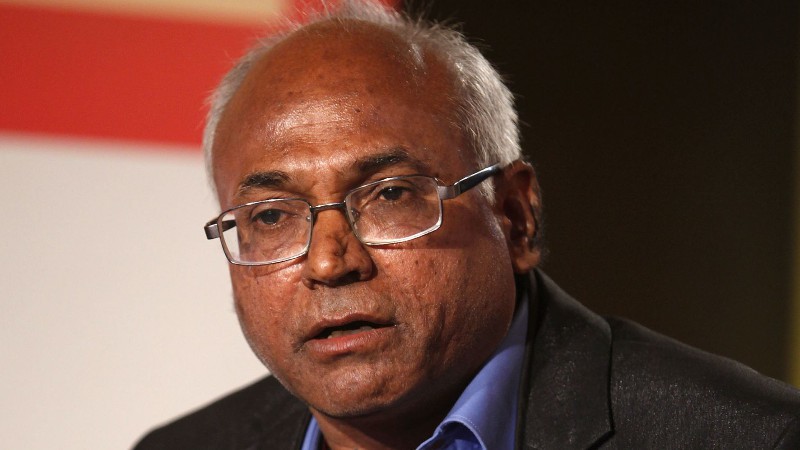
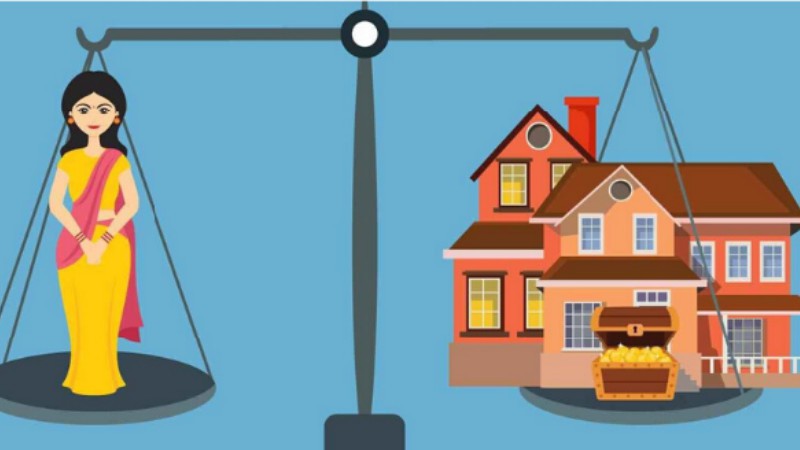

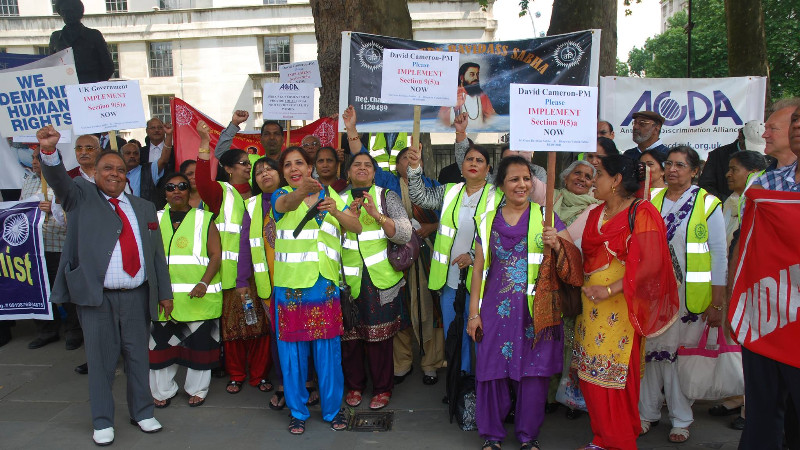
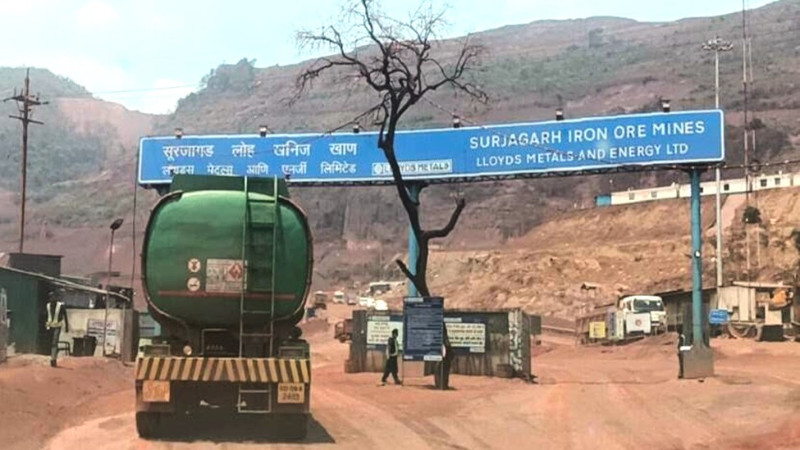
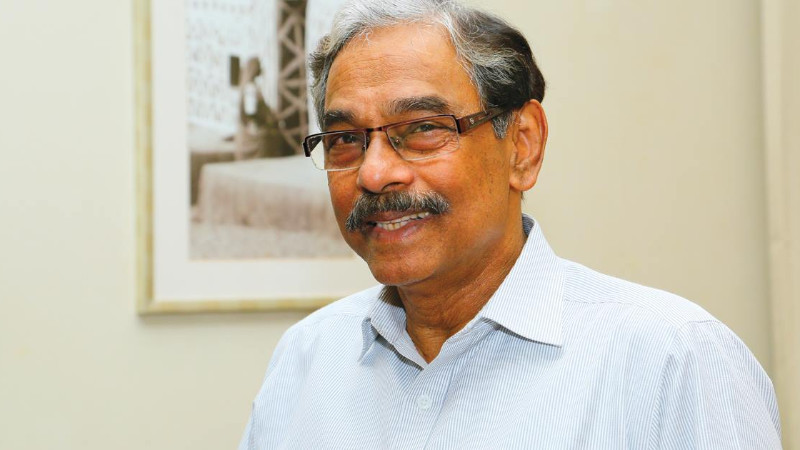
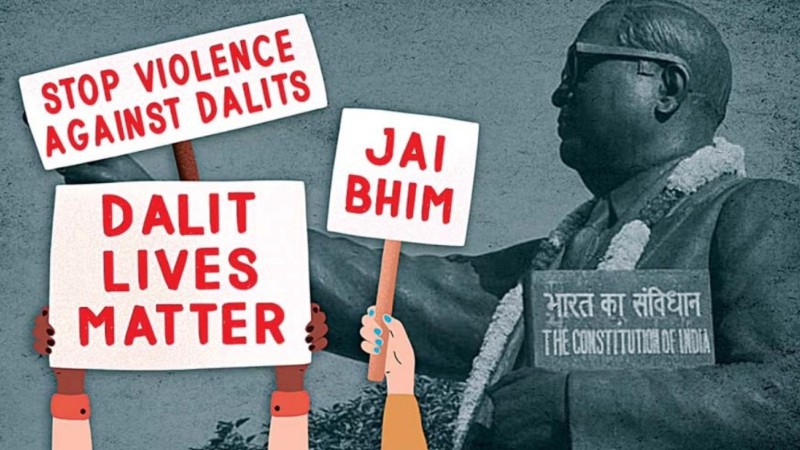


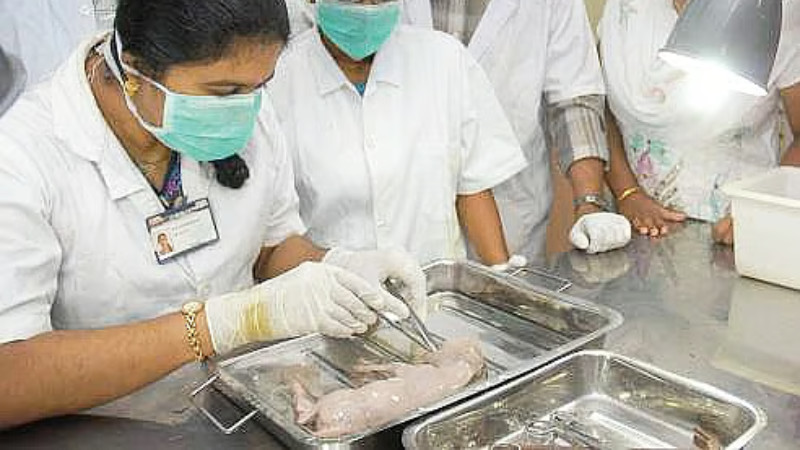
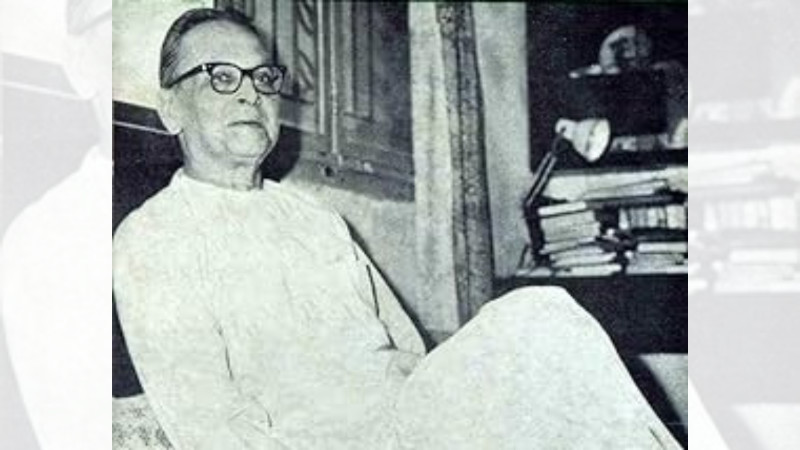
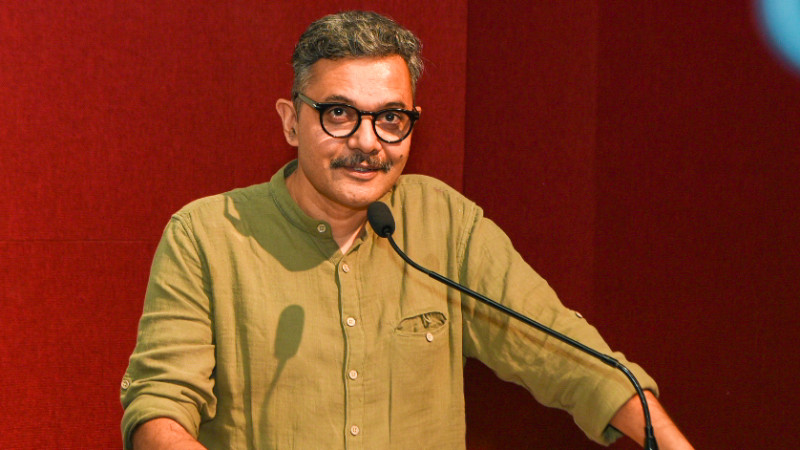
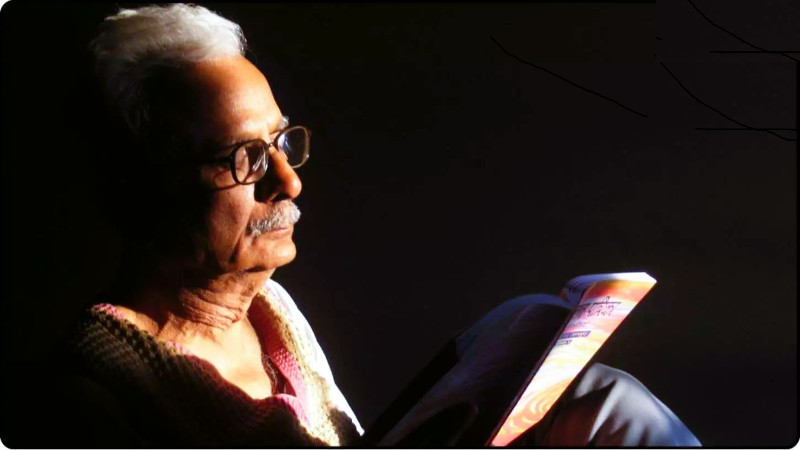
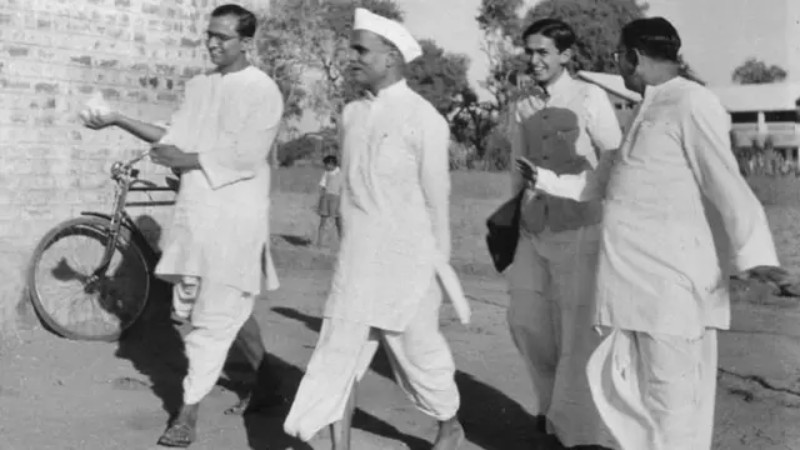
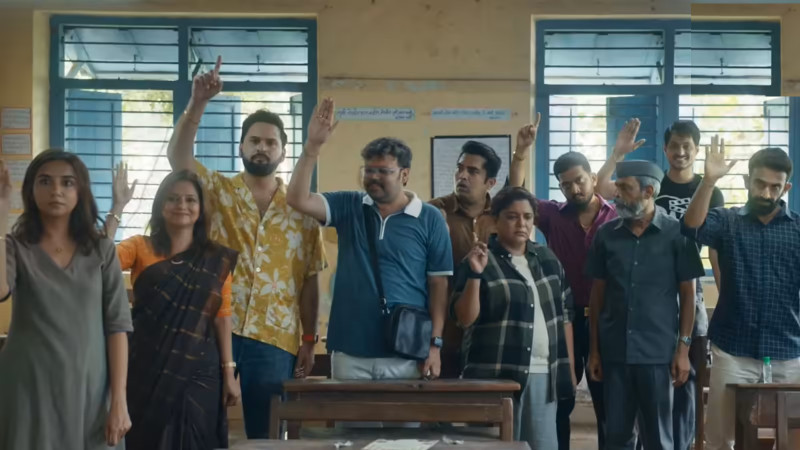
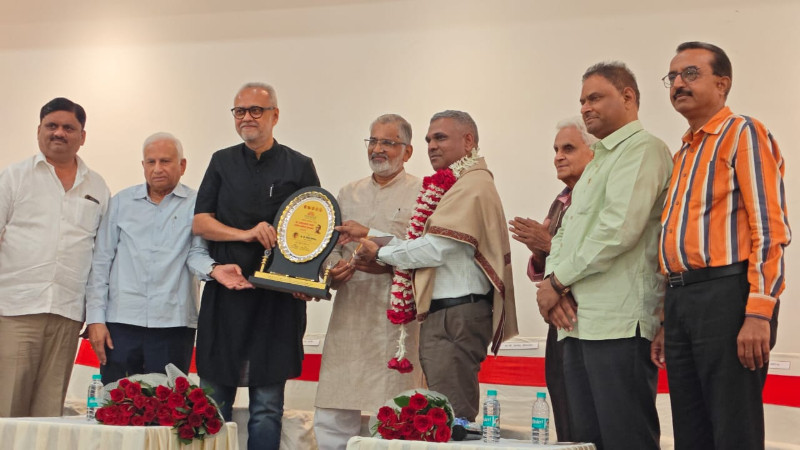
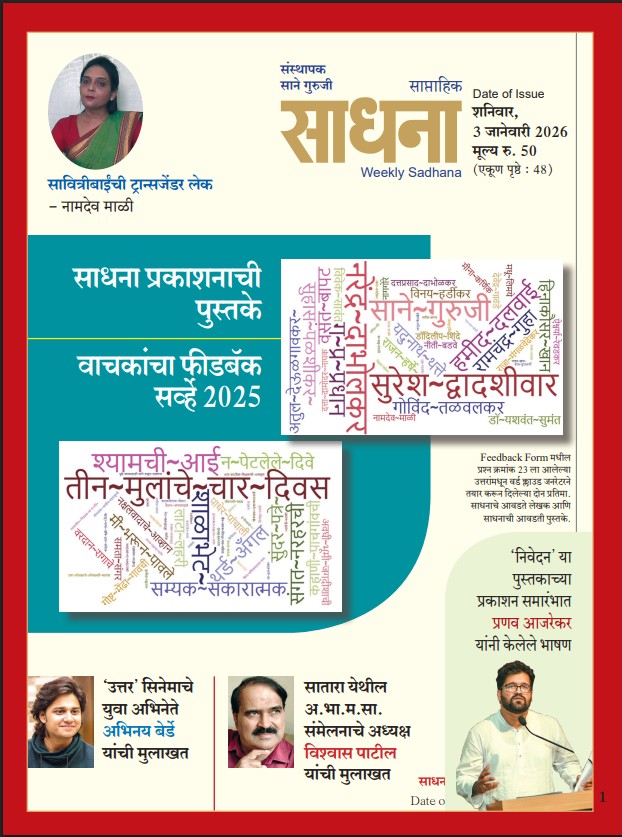













Add Comment